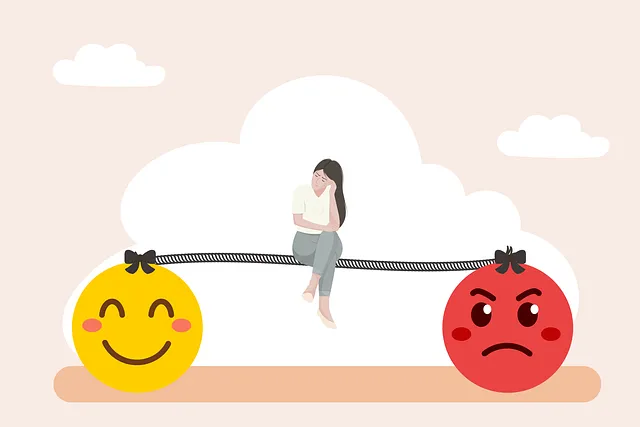Mental wellness journaling, facilitated by Englewood Kaiser's classes, is a proven method for self-improvement and stress management. By using a journal (physical or digital) with dedicated sections, individuals can track triggers, coping strategies, emotions, thoughts, and behaviors. This practice, emphasizing daily reflection and mindfulness techniques, enhances mental health awareness, improves mood regulation, and fosters personal growth, aligning with key mental health policy goals. Regular journaling helps identify patterns, promotes self-care, prevents burnout, and offers a safe space for expression, ultimately transforming individuals' emotional landscapes.
Unwind and prioritize your mental wellness with the transformative power of journaling. This guide explores how mental wellness journaling can be a simple yet effective tool for self-care, offering a space to process emotions, track moods, and cultivate self-awareness. From understanding its benefits to practical tips for engagement, this resource empowers individuals to take charge of their mental health, much like the supportive classes offered by Englewood Kaiser. Dive in and discover how regular journaling can enhance your overall well-being.
- Understanding Mental Wellness Journaling: Benefits and Goals
- Setting Up Your Journal: Tools and Techniques for Success
- Structuring Your Entries: What to Include and How Often
- Engaging in the Practice: Tips for Consistency and Self-Compassion
- Reflecting and Tracking Progress: Analyzing Your Journey Towards Mental Wellness
Understanding Mental Wellness Journaling: Benefits and Goals

Mental wellness journaling is a powerful tool for self-reflection and personal growth. By dedicating time to record thoughts, emotions, and experiences, individuals can gain valuable insights into their mental health. This practice offers numerous benefits, such as improved mood management, enhanced emotional awareness, and increased resilience. Journaling provides a safe space to explore feelings, track progress over time, and identify patterns that contribute to overall well-being.
Englewood Kaiser mental health classes often incorporate journaling exercises as part of their comprehensive approach to mental health education. These classes emphasize the importance of self-care and encourage participants to use journals as a means of expressing themselves, setting goals, and tracking their journey towards better mental health. Through regular practice, individuals can develop effective coping strategies and engage in meaningful conversations about their well-being, potentially leading to improved access to care and support within the community, aligning with key aspects of Mental Health Policy Analysis and Advocacy and the design of Mental Health Education Programs.
Setting Up Your Journal: Tools and Techniques for Success

Setting up your journaling practice is a crucial step in making it a successful and meaningful mental wellness exercise. Consider what tools will best support your journey. This could be as simple as a dedicated notebook or a digital journal app, depending on your preference and accessibility. Some individuals find that colorful pens and markers enhance their experience, creating a visually appealing space to record thoughts and feelings. Others might opt for structured templates or prompts provided by resources like Englewood Kaiser mental health classes, offering guidance when words seem challenging to come by.
Remember, the goal is to establish a routine that feels natural and beneficial. Incorporate self-care practices into your journaling ritual, such as taking a moment of silence before beginning or ending with a brief meditation. This can help frame your writing session as a safe and nurturing act of self-exploration. Whether you’re aiming to prevent depression or seeking crisis intervention guidance, consistent journaling can serve as a powerful tool, allowing you to track your progress, identify patterns, and gain valuable insights into your mental health journey.
Structuring Your Entries: What to Include and How Often

When structuring your mental wellness journal entries, consider dedicating specific sections for different aspects of your well-being. Start with a stress management segment where you reflect on triggers and coping strategies. Note down stressful situations, your initial reactions, and the techniques or activities that helped alleviate tension. This practice enables self-awareness and identifies patterns to better manage stress over time.
Incorporating mental health awareness is also vital. Journal about your emotions, thoughts, and behaviors throughout the day. Reflect on any shifts in mood or perspective. Englewood Kaiser mental health classes often emphasize the power of introspection, making journaling a valuable tool to track progress and cultivate compassion cultivation practices. Regularly reviewing your entries can help identify recurring challenges and areas for personal growth. Aim for consistent yet manageable frequency; daily reflections might be excessive, but weekly entries can provide significant insights into your mental landscape.
Engaging in the Practice: Tips for Consistency and Self-Compassion

Engaging in a consistent journaling practice can be transformative for mental wellness, and it’s accessible to everyone, even those new to self-care routines. At Englewood Kaiser mental health classes, we emphasize the power of self-expression as a tool for reflection and growth. Start by setting aside just 15 minutes each day for your journal—a quiet moment dedicated solely to you. Choose a time that works best with your schedule, whether it’s early morning or before bed, ensuring consistency. Consistency is key; regular journaling helps create a safe space for introspection, making it easier to track moods, thoughts, and patterns over time.
Remember, self-compassion is vital. Be kind to yourself as you write, especially when exploring difficult emotions. Journaling isn’t about perfection but about processing and understanding your experiences. Incorporate mindfulness techniques like Mindfulness Meditation into your routine for added clarity and focus. Through dedicated practice, you’ll develop a deeper sense of self-awareness, fostering more effective Empathy Building Strategies in your daily interactions and ultimately preventing Burnout.
Reflecting and Tracking Progress: Analyzing Your Journey Towards Mental Wellness

Englewood Kaiser mental health classes offer a powerful tool for personal growth through journaling exercises. By reflecting on your thoughts and emotions daily, you can track your journey towards improved mental wellness. This process involves analyzing patterns, identifying triggers, and celebrating victories—all essential components of the Mind Over Matter Principles. Journaling allows individuals to externalize their experiences, fostering self-awareness and providing a safe space for unfiltered expression.
Through consistent practice, you’ll gain insights into your emotional landscape, enabling more effective management of stress and anxiety. Additionally, this habit can enhance positive thinking by encouraging gratitude and reframing negative thoughts, skills also emphasized in Social Skills Training. Regularly reviewing your progress can motivate you to continue the journey towards better mental health, underscoring the transformative potential within these journaling exercises.
Mental wellness journaling is a powerful tool for self-discovery and growth, offering a safe space to explore thoughts and emotions. By implementing the strategies outlined in this guide, whether you’re new to journaling or a seasoned practicer, you can unlock the benefits of enhanced self-awareness, improved emotional regulation, and increased resilience. Remember, consistency is key; just as engaging in regular physical activity strengthens your body, consistent mental wellness journaling strengthens your mind. So, take the initiative, grab your pen, and begin documenting your journey towards a healthier, happier you—you might even find it to be a game-changer, much like the classes offered by Englewood Kaiser’s mental health programs.



